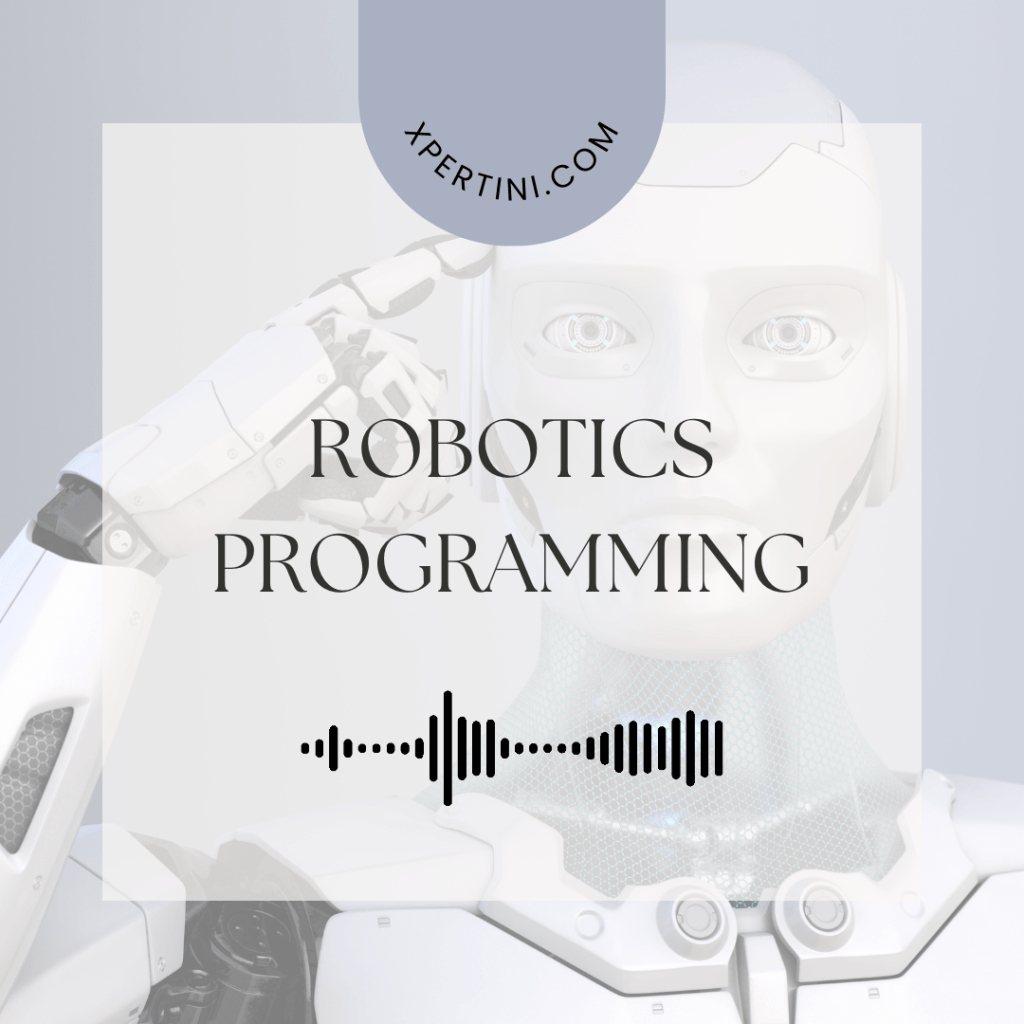Robotics Programming
Course Summary
“Introduction to Robotics” is a comprehensive course which is a meticulously crafted program designed for individuals aspiring to carve a niche in the ever-evolving field of robotics. By seamlessly blending theoretical foundations with practical insights, the course caters to both novices eager to explore this fascinating domain and seasoned professionals aiming to deepen their knowledge.
In this course, learners delve into the fundamental principles that underpin robotics, gaining an understanding of the mechanical and electronic components that constitute the building blocks of robotic systems. The exploration extends to programming basics, offering a theoretical foundation in coding concepts essential for shaping the intelligence of robots. Here, the focus is on clarity and accessibility, ensuring that learners comprehend the complexities without getting entangled in unnecessary complexities.
Moving beyond the basics, the course ventures into sensors and actuators, unraveling their pivotal roles in enabling robots to interact with and respond to their environment. The theoretical applications and case studies presented in this segment provide a panoramic view of the real-world impact of these technologies across diverse industries.
As the course progresses, it navigates through the currents of emerging technologies, including artificial intelligence and machine learning. This forward-looking perspective illuminates the future trends and innovations that will shape the landscape of robotics. Learners gain insights into how these technologies are seamlessly integrated into robotics, opening avenues for groundbreaking advancements.
The ethical considerations woven throughout the course add a crucial layer to the narrative. Engaging discussions on ethical issues in robotics, coupled with real-world case studies and debates, challenge learners to grapple with the moral dimensions of this transformative field. This segment serves as a compass, guiding individuals to navigate the ethical terrain inherent in robotics research and development.
The interdisciplinary nature of robotics takes center stage as the course explores collaborations between robotics and other fields such as artificial intelligence and engineering. Theoretical explorations of interdisciplinary projects shed light on the synergies that arise when diverse domains converge, emphasizing the interconnectedness that defines the cutting edge of robotics.
Culminating in a comprehensive overview of career opportunities in robotics, the course provides valuable guidance on skill development and professional growth. Learners gain insights into the diverse career paths within the field, equipping them to make informed decisions and chart their course in the exciting and rapidly evolving world of robotics.
In essence, “Introduction to Robotics” transcends traditional boundaries, offering a holistic and future-focused exploration of this transformative field. This course is not just an acknowledgment of the current state of robotics but a dynamic narrative that guides learners toward a future where they can contribute meaningfully to the evolving landscape of technological innovation.
Course Overview
This course provides a foundational understanding of robotics, spanning theoretical concepts to practical applications. Participants will explore the significance of robotics in various industries, gaining insights into its evolution, current state, and future trends.
Course Objectives
Understand the fundamental principles of robotics.
Explore the historical evolution of robotics.
Gain theoretical knowledge in designing and programming robots.
Analyze the impact of robotics on different industries.
Develop problem-solving skills in the context of robotics.
Evaluate ethical considerations in robotics.
Acquire knowledge of key robotic technologies.
Apply mathematical concepts relevant to robotics.
Explore the interdisciplinary nature of robotics.
Identify career opportunities in the field of robotics.
Course Outcomes
Acquire foundational knowledge of robotics principles.
Reinforced through discussions and theoretical exercises.
Assessments and feedback sessions will enhance learning and understanding.
Ensure understanding and application of robotics concepts.
Comprehensive range of topics, from basic principles to advanced applications.
Learning resources, including textbooks, online materials, and expert lectures, will be provided.
Access to mentorship and support to enhance their learning experience.
Applied through discussions and case studies.
Institutional context and adapt to meet the needs of diverse learners.
Varied learning styles and preferences will be accommodated to ensure inclusivity.
Course Audience
Individuals aspiring to pursue a career in robotics.
Professionals seeking to enhance their knowledge of robotics.
Students and enthusiasts interested in the interdisciplinary field of robotics.

